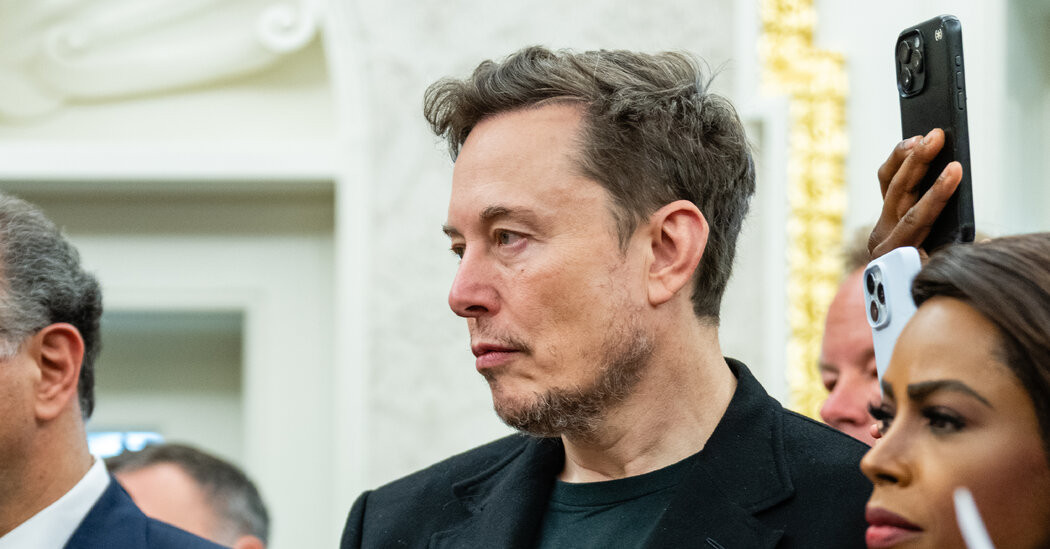

The world’s richest man created disruption and fear before giving up on revamping government. But his companies will now face less oversight.
Just three months ago, Elon Musk stood before a crowd of roaring conservatives and held up a chain saw. He was at the height of his influence, swaggering in a self-designed role with immense power inside and outside the government.
“We’re trying to get good things done,” he said, using the chain saw as a metaphor for the deep cuts he was making in government. “But also, like, you know, have a good time doing it.”
Mr. Musk’s time in government is over now. His good time ended long before.
Mr. Musk is leaving his government position after weeks of declining influence and increasing friction with both President Trump and shareholders of his own private companies. But Mr. Trump on Thursday suggested that he was still aligned with one of his chief political patrons, saying that he would appear with Mr. Musk at the White House on Friday afternoon for a news conference.
“This will be his last day, but not really, because he will always be with us, helping all the way,” Mr. Trump wrote in a post on his social media site. “Elon is terrific!”
Mr. Musk’s time in Washington has brought significant benefits to his fastest-growing company, SpaceX, the rocket and satellite communications giant. Musk allies were chosen to run NASA and the Air Force — two of SpaceX’s key customers — and one of the company’s major regulators, the Federal Communications Commission.
But Mr. Musk never came close to delivering on the core promise of his tenure: that he could cut $1 trillion from the federal budget.